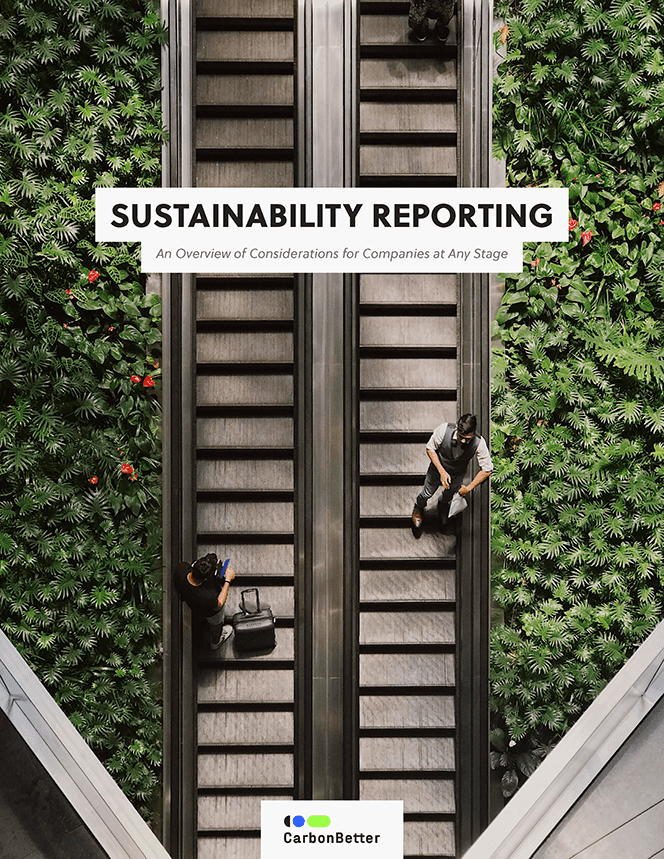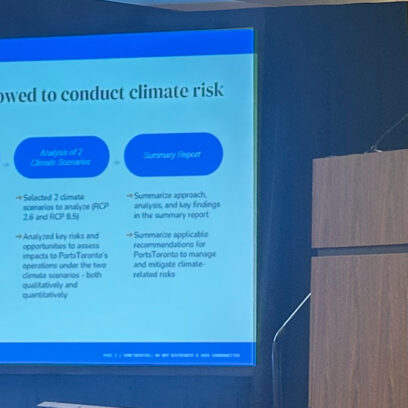Preparing For Possible New SEC Climate-Related Regulations


As climate-related disclosure and mitigation requirements continue to evolve, understanding the latest regulatory landscape is essential for US companies. In this webinar, we cut through the jargon to provide clear insights into emerging climate-related requirements, breaking down two key federal proposals and one EU regulation impacting some US-based companies. Join us to stay informed and prepared for what’s ahead in climate compliance.
Public companies may soon be required to report on climate-related risks and greenhouse gas emissions. Here’s how to prepare.
SEC Climate-Related Disclosure Update (1/24/23)
The United States Securities and Exchange Commission (SEC) has placed climate-related disclosure on its rule-making agenda, with expectations for a finalized rule in the near future. After initial delays due to technical issues affecting the comment submission process, the SEC extended the public commenting period, ensuring that a wide range of feedback is considered. We’ll update this post with new information as it’s released. To stay informed on proposed climate regulations and learn proactive steps for preparedness, join our upcoming webinar, where we’ll cover everything you need to know.
Register NowA recent Deloitte study revealed that 57% of public companies have already implemented a cross-functional working group tasked with driving strategic attention to Environmental, Social, and Governance (ESG) to “meet rising stakeholder demand and approaching regulatory requirements.” Nearly all other public companies polled (42%) are planning to follow suit. With its new proposed rule, titled “The Enhancement and Standardization of Climate-Related Disclosures for Investors,” the Securities and Exchange Commission (SEC) aims to standardize the climate-related disclosure efforts already underway at many publicly-traded companies. Through this proposed new rule, the SEC’s goal is to fulfill its duty to “protect investors, maintain fair, orderly, and efficient markets, and facilitate capital formation” by improving the accuracy, reliability, consistency, and integrity of climate-related disclosures that investors can use to make sound investment decisions.
In a previous post, we covered what’s in the new proposed rule, including which organizations it may affect, what may be required to comply with the proposed rule, and a possible timeline for when the rule may go into effect. In this post, we’ll cover some ways to start preparing for if and when this rule goes into effect.
About the New SEC Rule
The proposed rule, which is supported by more than 2,600 organizations (with a market cap totaling $25 trillion) and 1,069 financial institutions (with managing assets totaling $194 trillion), would require that public companies disclose information about climate-related risks that are “reasonably likely to have material impacts on its business or consolidated financial statements.” Including greenhouse gas (GHG) reporting and metrics could give investors the quantitative information they need to assess those disclosed risks. Companies can also disclose climate-related opportunities in the same manner as risks. The proposed disclosure framework is based on the Task Force on Climate-Related Financial Disclosure (TCFD) recommendations, which include 11 topics related to the assessment, management, and disclosure of climate-related financial risks.
CarbonBetter helps organizations take proactive steps to ensure compliance with potential new regulations, including the proposed SEC rule and the proposed federal supplier rule. Reach out today to get started.
Contact UsOrganizations That May Be Affected
The proposed rule would only affect publicly traded companies as it’s currently written. Private companies would not be directly affected by this new rule in its current form, but there is a clear trend of companies becoming more transparent with climate-related disclosures due to interest not only from investors but consumers as well—smart companies, public or private, are starting to plan for the inevitable expansion of climate-related disclosure requirements now.
Headwinds Facing Rule Passage
There are a few factors that may complicate the passage of this proposed SEC rule:
- A technical “glitch” prevented some feedback from being submitted, so the comment period was extended in October 2022.
- A Supreme Court ruling issued after the proposed rule may affect the SEC’s ability to regulate climate-related risk disclosures.
- Results from recent elections may create new headwinds for ESG-related regulatory proposals.
“A recent Deloitte study revealed that 57% of companies have already implemented a cross-functional working group tasked with driving strategic attention to Environmental, Social, and Governance (ESG), with nearly all others (42%) planning to follow suit.”
NICOLE SULLIVAN ON THE GROWING TREND OF ESG INITIATIVES IN COMPANIES

SUSTAINABILITY REPORTING OVERVIEW
Sustainability reporting serves as a valuable tool to achieve corporate commitments and better manage climate-related business risks. This white paper walks you through what's typically included and what should be considered.
Why Companies Should Start Preparing Now
The proposed rule is largely standardizing climate-related disclosures that are already happening in the market today. By waiting any longer, organizations risk falling even further behind the inevitable trend of transparent climate-related disclosures that both investors and consumers have grown accustomed to incorporating into their investment and purchasing decisions.
How to Prepare
The Proposed Requirements
Under the proposed rule, public companies would be required to disclose Scope 1 and 2 emissions, disaggregated and in the aggregate, both in absolute and intensity terms. Scope 3 emissions would need to be disclosed if material or if the company has set a Scope 3 emissions target.

Where to Start
The first step is to conduct a gap analysis to understand the differences between your organization’s current sustainability efforts and what may be required if the proposed rule passes in its current form. You can do this internally or by contacting us. We'll start by asking questions like these:
- Has your organization completed Scope 1, 2, and 3 GHG emissions quantification and GHG emissions intensity? Has your organization completed a materiality assessment to determine if Scope 3 emissions are material? The proposed rule would require Scope 1 and 2 emissions metrics both by disaggregated constituent GHGs and in the aggregate, reported in absolute and intensity terms. The proposed rule would require Scope 3 emissions and intensity if material or if the company has set an emissions target that includes Scope 3 emissions, with some exceptions.
- Does your organization currently disclose its emissions? The current proposed rule makes certain requirements for disclosure that would need to be followed.
- Has your organization identified and quantified climate-related risks? The proposed rule would require reporting on how climate-related risks, including known risks and risks that are reasonably likely to have a material impact on the business or consolidated financial statements, may affect the business in the short, medium, or long term. The proposed rule would require reporting on how climate-related risks have shaped or are likely to affect the company’s strategy, business model, and outlook.
- Has your organization identified and quantified the impact of climate-related events on the business? The proposed rule would require reporting on the impact of climate-related events (e.g., severe weather) and transition activities (e.g., policy changes) on the line items of the company’s consolidated financial statements and on its financial estimates and assumptions used in the financial statements.
- Has your organization set climate-related targets or goals? Companies that have set climate-related targets or undertaken climate planning, including a transition plan or scenario analysis, would need to provide information about those planning processes. Additionally, the rule would also allow, but not require, companies to disclose information about climate-related opportunities.
- Does your organization have a budget set aside for sustainability? It may need to be expanded to ensure compliance with potential new regulations. Because budgets are set at specific times of the fiscal year, it’s critical to complete a gap analysis as early as possible to understand the estimated resources necessary.
- Does your organization have internal sustainability resources? Even if it does, there may be areas of expertise required that are not represented on your team that can be filled with fractional support by a company like CarbonBetter. In addition, working with a third party like CarbonBetter can add accuracy and credibility to compliance efforts. The proposed rule would require oversight and governance of climate-related risks by the company’s board and management. The proposed rule would also require reporting on the processes for identifying, assessing, and managing climate risks and how those processes fit into overall risk management.
Conclusion
The right sustainability partner will be critical in meeting potential new SEC regulation deadlines and limiting risks associated with noncompliance. CarbonBetter helps organizations navigate the complexities of voluntary and mandatory climate-related efforts, including measuring Scope 1, 2, and 3 emissions, disaggregated and aggregated, and in both absolute and intensity terms. Reach out today with questions or to get started.
Whether mandated by this rule or another rule, or because of pressure from investors and/or customers, there's a growing expectation that companies should disclose their climate-related risks and carbon emissions—even when it's not required. By getting started today, your organization can help lead the way to a future where businesses takes responsibility for their impact on the environment, while avoiding potentially higher costs down the road, including possible non-compliance fines.
Perform a gap analysis to see what differences there are (if any) between the efforts already underway at your organization and what would be required under the new proposed SEC rule, as it's currently written. CarbonBetter can help your organization navigate the nuances of the proposed new SEC rule. Contact us today to learn more.
Disclosure of Scope 3 emissions would only be required where material and for companies that set Scope 3 emissions targets. CarbonBetter can help you figure out what would be required of your organization to disclose under the proposed rule, as it's currently written. Contact us today to get started.


